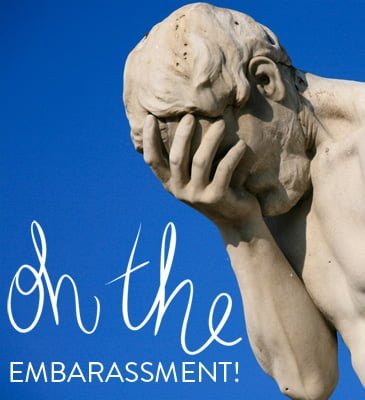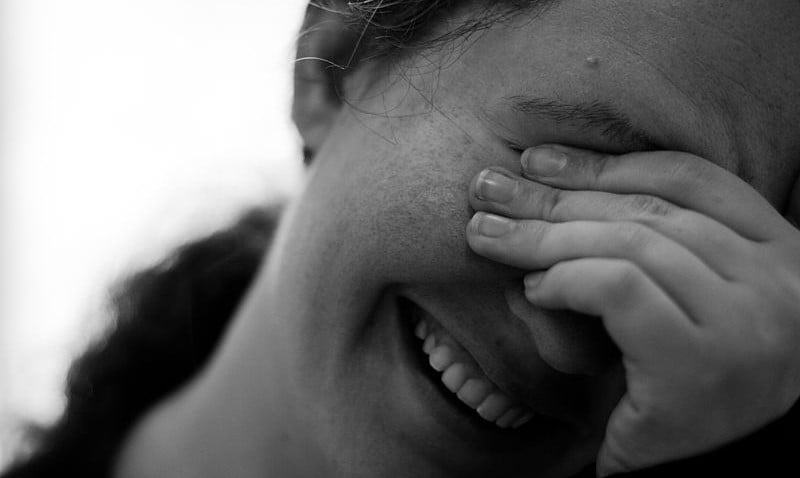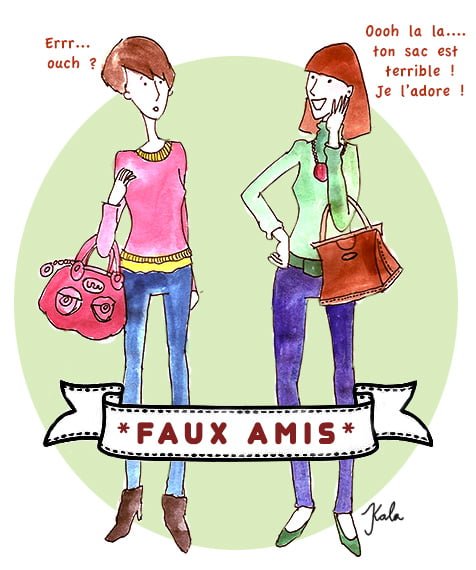French language mistakes: our most embarrassing moments

You love the culture, you love the country, you love the food, and you especially love the language. And don’t we all! It’s beautifully melodious, very sophisticated, and there’s nothing more satisfying than hearing it flowing from your own lips.
But be warned! Language learning forces you out of your comfort zone. While this will broaden your horizons, bring you experiences you would never otherwise have had and make you feel so very cultured, it can also be cripplingly embarrassing.
This does, however, give you some excellent stories. Here are our favourites.
1. A very false friend
One of the biggest mistakes made by French language learners concerns ‘false friends’, or faux amis.
These are the words that appear to be the same as in English, but mean something completely different. As an example, while you might think the verb blesser is something a priest might do, it actually means to injure.
Obviously, the misuse of these words can be very embarrassing. Take for example, the time our friend decided to complain to the waiter about the cheap wine we’d been served. “Ce vin a un gout amer” she said, “et il est plein de préservatifs.”
Unfortunately, as Catherine Broughton explained to us in her series on faux amis, préservatif does not translate as preservative.
What our friend had actually told our bemused waiter was: “This wine tastes bitter, and it’s full of condoms.”
2. Mind your grammar!
It may be the least fun part of learning French, but slipping up on your grammar can get you in deep water.
As one girl writing on the About.com forum explained, it’s a common problem. Intending to ask a friend what he wanted her to do, she asked, “Qu’est-ce que tu veux me faire”, asking him instead what he wanted to do to her.
Yes, pronoun placement is key in the French language.
Annoyingly though, this isn’t all: many French adjectives change meaning depending on whether they are placed before or after the noun. This can be humiliating, as we discovered when attempting to introduce someone as our former French teacher. Instead, we placed ancien after the noun, meaning we introduced her as “my old (as in aged) French teacher”.
This was made doubly embarrassing when we remembered she had been the one to teach us that particular grammar rule…

3. Two separate conversations
As MyFrenchLife™ correspondent Katerina Forrester explains, the key is to “surround yourself with French.”
The best way to practice the French language is to stubbornly refuse to speak English while you’re in France (even pretend not to speak English at all). This way, you won’t get the locals attempting to practice their English on you, defeating the objective. Even when you do get a taxi driver, a waiter or even a stranger in a bar that realises your Anglophone roots, and decides to stick to l’anglais, just keep replying in French.
As good advice as we think this is, it can lead to embarrassing situations – especially for beginners.
Upon our first ever visit to France we found ourselves face-to-face with a waiter whose English was as limited as our school French, but insisted on speaking it anyway. We of course persevered in French. What this led to was a complete and utter breakdown in communication.
We wound up with horse meat for the vegetarian, a bottle of bourbon instead of wine and more meals than people.
What was really confusing, however, was when the manager approached our table and asked in broken English to see “the jewel”.
To this day, we have no idea what he was talking about…
4. A complete misunderstanding
As MyFrenchLife™ writer Emily Monaco found, sometimes it’s easier to nod and smile when somebody is speaking to you in a foreign language – pretending you have understood – rather than asking them to clarify.
“My host father grins again and reaches for the serving spoon to heap more potato gratin on my plate, but I’m stuffed,” remembers Emily.
“’Pas encore’, I say. I was as certain then, that what I was saying meant ‘no more’, as I am certain ten years later that it does not. It means ‘not yet’, which now makes the three-month cycle of M. Masurel trying to heap more food on my plate and my refusing him with a smile make much more sense.”
We’ve all done it, but it can have disastrous consequences.
Saying oui when someone enquires about what you’re drinking, or laughing after you’re asked a question can lead to some very awkward moments, especially when you then have to admit you have no idea what’s going on.
It may feel embarrassing, but it is better to stop someone, and ask them to speak slower, explain in more detail or even pause so you can consult a dictionary, than laugh when they tell you about their colonoscopy.
Because yes, that has happened.
5. Don’t be rude
Being polite in French is a lot harder than being polite in English, and it is far too easy to inadvertently offend someone. Whether you’re stuck between tu and vous, or madame and mademoiselle, you can quickly find your words have provoked utter outrage.
David Jaggard gives some good advice on how to manage the impossibility of French politesse in his excellent article. If you want to avoid mortally offending your Francophile friends, we highly recommend reading it.
6. Embrace the mistakes
Mistakes come with the territory when learning a language, and the trick is to not let them destroy your confidence. Fluent in Three Months argues that it’s not the mistake that’s embarrassing, but the reaction. Laugh it off, and persevere. Before you know it, your mistakes will be few and far between.
And until then, you’ll have some really good stories to tell at the dinner table.
We’d love to hear your frighteningly embarrassing French language stories (so we feel a little less hopeless!). Share your cringe-worthy moments below in our comments section!
Image Credits:1. Statue in the Jardin de Tuilleries, by Alex E Proimos, via Wikipedia.
2. © Kala Barba-Court.
3. Embarrassed woman by Michael, via Wikimedia Commons.
4. A Night in Paris, by Zdenko Zivkovic, via Flickr.
5. If You’re Not Confused, by Brian Talbot, via Flickr.
6. Bordeaux monument aux Girondins, by Olivier Aumage, via Wikipedia.











This is awesome, Daisy! I really want to know what happened between that waiter and ‘the jewels’!
My most common mistake is immediately referring to someone as ‘tu’ rather than ‘vous’. Ahhh the embarrassment! Yes, they know that French isn’t your first language.. but you wanted to see how long you could fake it for, mon dieu!
Now I am confused! I understood that my ‘ancienne prof’ is my former prof? My ‘prof ancienne’ is the aged one!